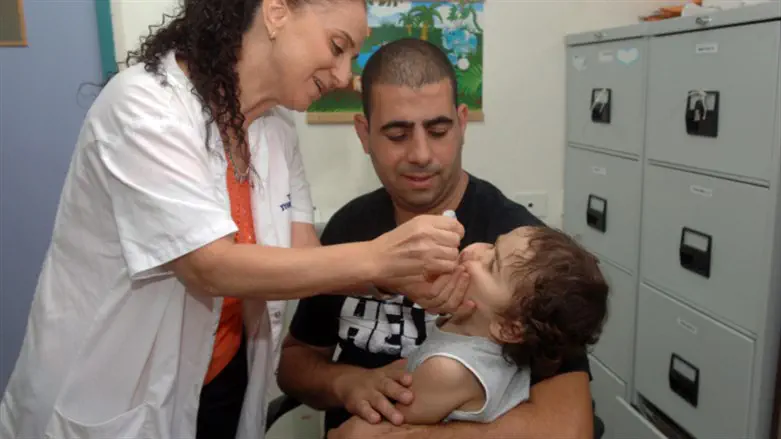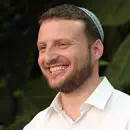
The Public Health Services unit of the Jerusalem Municipality and the Ministry of Health announced the opening of an immunization complex at the Frenkel Emergency Medical Center in Yad Sara on Herzl Boulevard 134 in Kiryat Moshe today (Wednesday). The center will provide treatment for tens of thousands of children who have yet to receive the polio shot.
With six children already diagnosed as carrying the life-threatening virus in the capital city, efforts are underway to vaccinate youngsters. According to data provided by the Ministry of Health, approximately 18,000 children have already received the shot since the campaign got under way.
The Ministry of Health, meantime, continues to urge parents to ensure their children are vaccinated for the disease, reminding them that the polio vaccine has been proven as the safest and most effective means of preventing infection.
As you will recall, in an initial report dating back to March 17, Israel's Health Ministry reported that polio had been found in the sewage systems of Jerusalem, Beit Shemesh, Modi'in Illit, and Tiberias, while out of 11,785 vaccinated children in the capital, one was diagnosed for the virus, and another unvaccinated child was found to have asymptomatic polio.
The previous day, Health Ministry Director General Professor Nachman Ash called the possibility of a new polio outbreak, "very concerning and disturbing" in an interview with 103 FM Radio, adding that, "We have discovered a few cases of the virus to date."
"There is no vaccine mandate in the State of Israel," noted Ash, adding that, "We will make efforts to get the message across [but must avoid an outbreak from taking place in the country]."
On March 7, a Jerusalem-area child diagnosed with the virus after not receiving the vaccine due to opposition from his parents, was found suffering from neurological weakness, with doctors voicing concern he would be crippled as a result of the sickness.
At the time it was reported that the patient's symptoms could take a turn for the worse and he could suffer paralysis in the same fashion children did during the outbreak in the 1950s.
The case was the first of its kind in Israel dating back to 1989, and the Health Ministry voiced concern that the rare virus would spread around the country, while trying to locate individuals who had come in close contact with the sick child.
